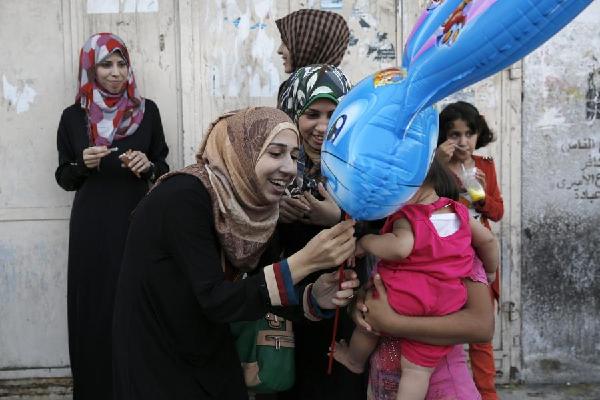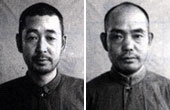Calm restores in Gaza amid 72-hour ceasefire
(Xinhua) Updated: 2014-08-06 10:04GAZA - Calm restored in the Gaza Strip on Tuesday after Israel and Gaza militants led by Hamas movement accepted a 72-hour ceasefire brokered by Egypt after more than four weeks of fighting that killed 1,867 Palestinians and 64 Israelis.
|
|
| Palestinians enjoy an afternoon out during the first day of a three day ceasefire, in Gaza City August 5, 2014. [Photo/Agencies] |
The ceasefire came into effect at 8:00 am (0500 GMT) on Tuesday, when both Israel and Gaza militants held fire. Egypt is hosting three-day indirect talks between Israel and a senior Palestinian delegation in a bid to draft on a permanent truce.
The current 72-hour ceasefire is expected to last and there is a possibility to extend it for another 72 hours, according to officials closed to the talks. Earlier, Hamas and Islamic Jihad leaders left the Gaza Strip to join the Palestinian delegation in Cairo.
Meanwhile, Israeli Radio reported that the Israeli ground forces which began its large-scale incursion into northern, eastern and southern Gaza Strip in July 17 pulled out to the border area between Israel and the coastal enclave.
Shortly before the cease-fire came into effect, several rockets were fired from Gaza into central Israel in spite of a first relatively calm night.
Hamas' armed wing al-Qassam Brigades said in a text message that its militants fired several rockets into Israel "in response to the occupation's crimes and massacres against families in the Gaza Strip."
Israeli war jets in return carried out several airstrikes on Gaza city and on the southern Gaza Strip town of Khan Younis, where tanks fired shells on eastern Gaza and battleships fired from the sea on northern Gaza.
Right after the cease-fire came into effect, Gaza residents went out from their homes. Main streets and markets of Gaza city were full of traffics and people.
Banks reopened in the Gaza Strip to allow employees cash their salaries while thousands of displaced return to their homes they fled during the Israeli offensive.
Gaza rights groups estimated that 1,724 houses were completely destroyed. The rights groups also said in a joint statement that 134 mosques were damaged, including 43 completely destroyed. Two churches in Gaza city were also damaged due to the intensive Israeli air and ground strikes, 10 graveyards were damaged as well.
In addition, rescue workers and paramedics rushed to the areas that were severely attacked by the ground forces in the coastal enclave, in an effort to search for corps and survivals in the destroyed houses.
Ashraf al-Qedra, spokesman of the health ministry, told Xinhua on Tuesday that 12 corps were found under the rubble of the destroyed houses allover the Gaza Strip, adding that among the 1, 868 dead, there are 429 children, 243 women and 79 elderly men.
Meanwhile, Gaza workers seized the opportunity of peace to fix part of the destroyed infrastructure, including roads, electricity, water pipes and telephone lines which were under severe destruction by Israeli bombs.
Palestinian President Mahmoud Abbas on Tuesday welcomed the temporary ceasefire. The state-run news agency Wafa reported that Abbas asked Israel to respect the ceasefire, calling for the country to accept the Egyptian-proposed initiative for a permanent truce between the two sides.
However, Sami Abu Zuhri, Hamas spokesman in Gaza, said in an emailed press statement that despite the ceasefire, "Hamas movement still can do a lot and PM (Benjamin) Netanyahu failed 100 percent in his aggression on the Gaza Strip."
Qadoura Fares, chairman of the Palestinian Prisoners' Club Association in the West Bank, said many Palestinians were arrested in the Gaza Strip during the ground operation, adding that "we are concerned that the prisoners might have been executed."











